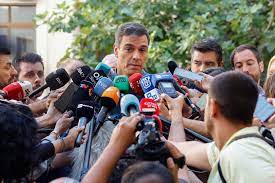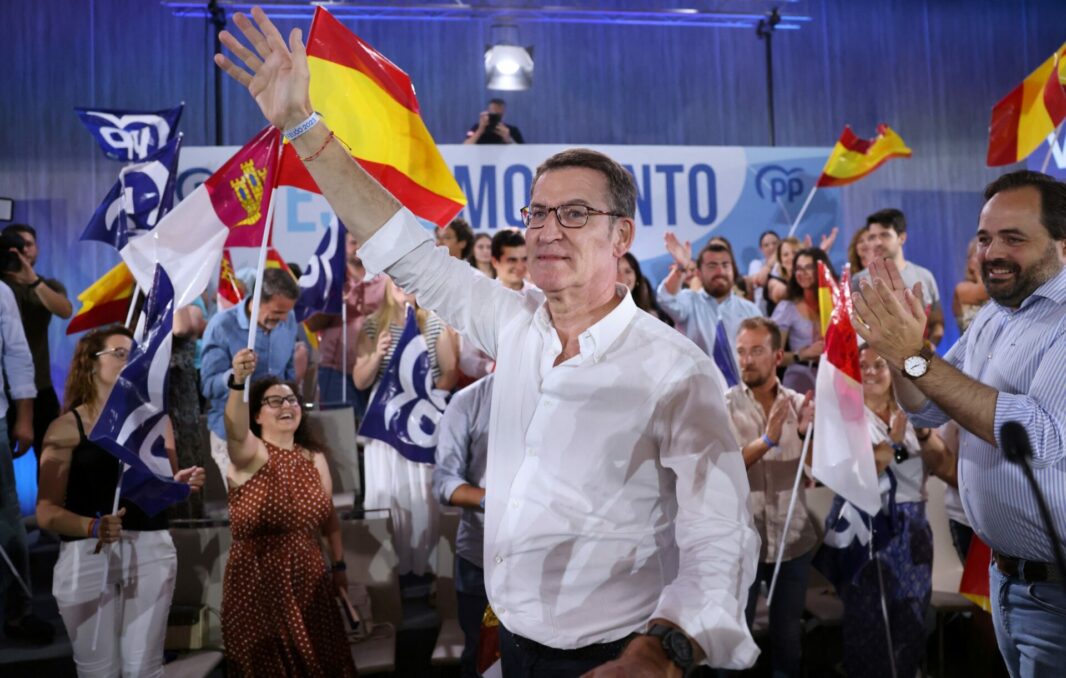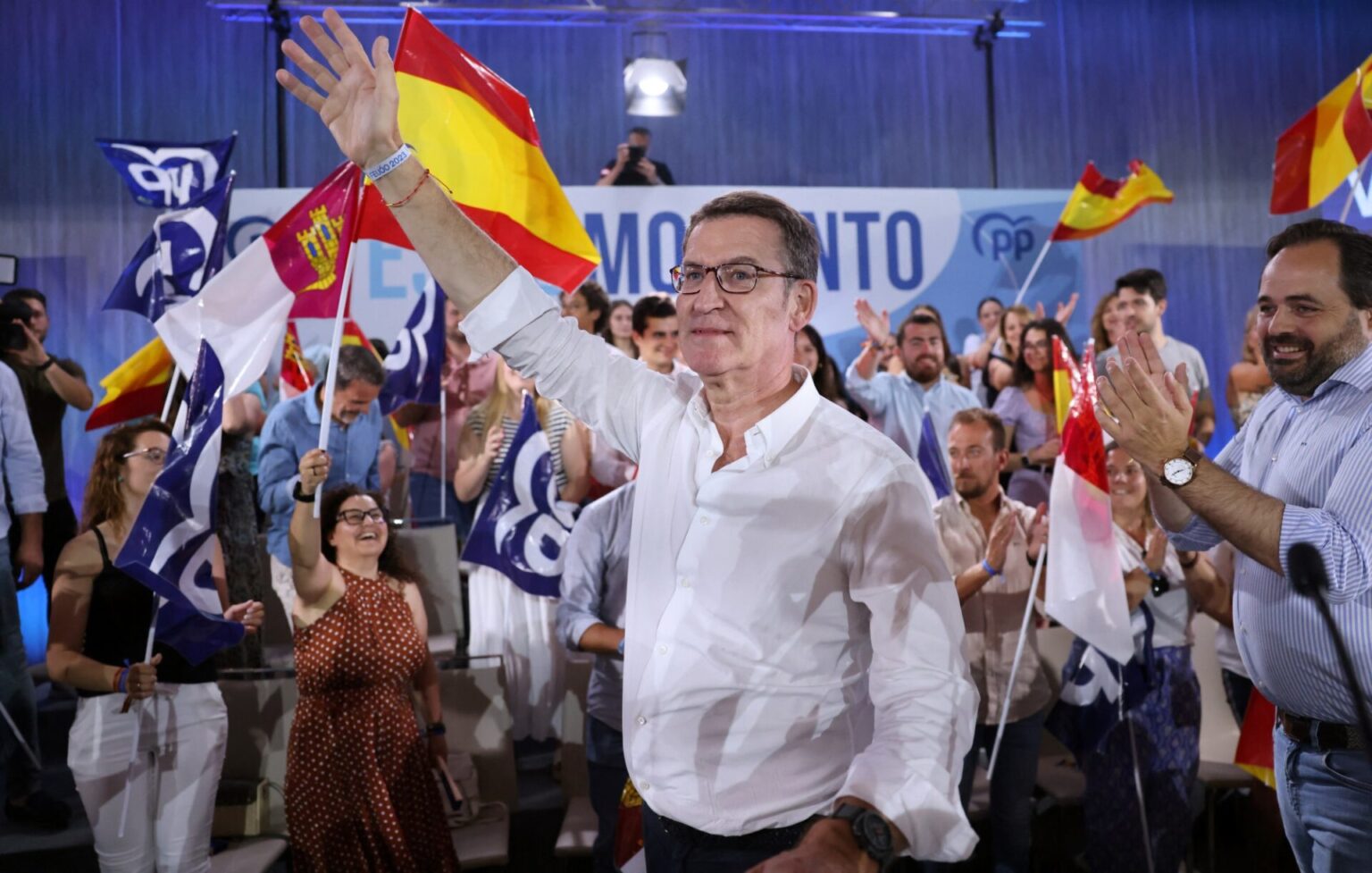Spain’s national election results on Sunday came without a clear majority for any party. This has made way for a hung parliament without either the left or the right being able to form a government. A party must win at least 176 seats for an absolute victory in Spain. The two right-wing parties together could not win enough seats to form a government. The conservative opposition People’s Party (PP) secured 136 seats, whereas the Socialist Workers’ Party (PSOE), of which Prime Minister Pedro Sanches is a part, bagged 122 seats.

Although the conservative Popular Party won the elections, it needed to enter into a coalition in order to form a government. The party led by candidate Alberti Núñez Feijóo underperformed according to most opinion polls.
A game of blocs:
Pedro Sanchez’s socialist party finished second. However, they and their allies celebrated the outcome since their coalition gained a few more seats than the PP and the far-right party, Vox. Consequently, Sanchez’s left bloc totalled 172 seats and the right bloc led by Fejioo totalled 170. Al Jazeera remarked that Spain “once again, finds itself in a political limbo.”
Spain abandoned the bi-party system in 2015. Since then, forming majority governments has been complicated. Right now, the left is winning. However, the right could still win if the PP collaborates with Vox. This, however, seems impossible since Vox is opposed to working with regional nationalist groups. On top of that, many are reluctant to the idea of letting a far-right party ascent into power for the first time since the four-decade reign of Francis Franco.
Presently, Sanchez’s PSOE would have to rely on Catalan separatist parties heavily. In the past four years, these parties have opposed Sanchez’s government vehemently.
This neck-to-neck outcome of the elections is likely to produce some political back and forth or the coming weeks. A new parliament will convene on 17th August. Negotiations to form governments will start then. Till that time, uncertainty is likely to loom over the country’s future leadership.
What do the opponents say?
Current Prime Minister Pedro Sanchez described the 2024 Spain election results as a defeat of the far-right. Addressing a cheering crowd, she said, “Spain and all its citizens who voted have been absolutely clear.” “The bloc that wanted to undo all our progress over the past four years has failed.” His election campaign was focused on warning about the dangers of a PP-Vox government. To some degree, his efforts have paid off.
Feijoo, on the other hand, was focused on his promise to “overthrow Sanchismo.” After the election results, addressing his supporters outside the PP headquarters in Madrid, he said, “ As the candidate of the party that won the most seats, it is my duty to try to form a government.”

Vox leader, Santiago Abascal, said the election results were “bad news for Spaniards.” He exclaimed, “Pedro Sanchez, despite losing the elections, can block Feijoo’s investiture and, even worse, Pedro Sanchez could even have the support of communism, the coup-seeking separatism and terrorism.”
“We will not make Pedro Sánchez the PM in exchange for nothing,” warned Miriam Nogueras, head of the Junts (a Catalan separatist party) list, on election night.
An unforeseen twist?
Several times during his campaign, Feijoo called on Sanchez to let him govern. The chances of that happening are almost non-existent, especially after the narrow vote gap. Sanchez, too, denied this possibility repeatedly during his campaign. Still, if the deadlock persists, some unforeseen twists could arise.












